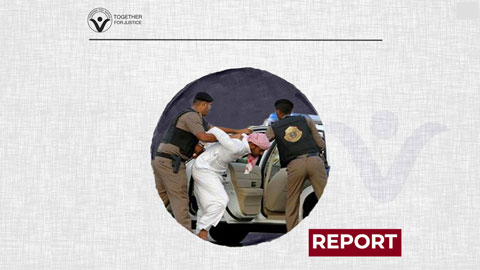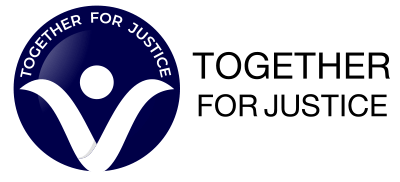2021 – Deterioration of Human Rights Situation in Saudi Arabia

This year witnessed harsh sentences against a number of opponents, harsher punishment of others, while perpetrators of violations enjoyed impunity, in addition to the ongoing restriction of freedom of opinion and expression, even though social media, as happened with the detainees of the May campaign who got arrested for tweets and blogs on the internet.
This year, the Specialised Criminal Court in Riyadh ruled in the Palestinian and Jordanian detainees on charges of rejecting the Israeli occupation, who were arrested from February to April 2019, held in very poor conditions and subjected to systematic physical and psychological torture with denial of having a lawyer.
Last August 8, sentences were issued against a number of them, ranging between acquittal and imprisonment for 22 years, including Dr. Mohamed Al-Khudari, former representative of Hamas in Saudi Arabia, who suffers from special health conditions due to his age, which is over eighty years old, in addition to having Cancer. Less than a week ago, the Court of Appeal decided to cancel the acquittal sentences and replace it with imprisonment, while the rest of the sentences were upheld, except for Dr. Mohamed Al-Khudari, whose sentence was reduced from 15 years to six years with a three-year stay.
The Saudi authorities increased the sentences for a number of other prisoners of conscience, such as Dr. Mohammed Musa Al-Sharif whose sentence was increased from 5 years to 13 years, and Dr. Youssef Al-Ahmad from 4 years to 13 years old, Sheikh Dr. Ali Omar Badahdah from 6 years to 9 years, and Adel Banama from 4 years to 6 years.
The Saudi judiciary has well proven that it is a tool used by the regime to brutalise its opponents, kill them and impose harsh sentences on them.
Saudi Arabia was among the ranks of countries that apply the death penalty the most, a punishment that included even minors, where the regime executed the young man Mustafa Darwish on charges claimed by the regime to have been committed while he was still a minor and did not reach the legal age.
Meanwhile, Al-Huwaitat tribe’s crisis remains without any solutions being offered by the regime, which continues its violations to complete the Neom city project that threatens the tribesmen with forced displacement and seizure of their lands and homes.
The Absent Justice: This is the perfect description for the case of journalist Jamal Khashoggi, who was brutally and treacherously murdered inside his country’s consulate in Istanbul in 2018 at the hands of agents affiliated with the Saudi regime. His whereabouts remain unknown, and the regime refuses to reveal any details on the trial of the people accused of killing him, as their identities or place of detention were not disclosed, and it was recently revealed that a number of them live absolutely freely in a luxury complex in Riyadh and lead their lives normally, which confirms the lies of Saudi regime that the killers are facing harsh sentences.
Khashoggi’s killing was the biggest evidence of the Saudi regime’s use of violence and force in dealing with dissenting voices, and of course, Khashoggi was not the only victim of these methods.
According to human rights and media reports by a number of international media and human rights organidations entitled “Project Pegasus,” one of the reasons that enabled the Saudi regime to arrest Khashoggi was the “Pegasus” spy program, a program produced by the Israeli NSO company and sold to governments and various countries for allegedly tracking senior figures, criminals and terrorists.
Reports proved that “Pegasus” targeted the phones of a number of those surrounding Khashoggi, such as his Egyptian wife Hanan Al-Attar, his Turkish fiancée Khadija Cengiz, and a number of his friends such as the Saudi activist residing in Canada Omar Abdel Aziz, and of course other Saudi opponents and activists were targeted by this malicious software.
Violations of the Saudi regime were not limited to Saudi citizens, as the war in Yemen is still going on, and civilians are still paying the price. Saudi airstrikes on civilian targets there continue, amid international support for the Saudi forces with arms including the United States and the United Kingdom, leading Yemen to suffer the worst humanitarian catastrophe in the world.
No matter how the Saudi regime claims its respect for freedom of opinion and expression, and its relentless endeavor to move from ancient times to the ranks of developed countries, Saudi Arabia is still stuck in the Middle Ages, where notorious prisons in which physical and psychological torture is rampant, and clear restrictions on freedom of opinion and expression is a trend, turning the kingdom to be among the most dangerous countries for journalists.
According to the international classification of Reporters Without Borders, Saudi Arabia ranks 170 out of 180 countries in terms of freedom and security of journalists and journalistic work. With this classification, Saudi Arabia ranks second to last in the Arab countries before Syria, which ranks 173.
According to statistics, Saudi Arabia holds 31 journalists and reporters in its prisons.
Saudi Arabia also scored 2.4 out of 10 in public safety measures, as it ranked second in the most dangerous countries for citizens around the world.
According to the Human Rights Measurement Initiative (HRMI), Saudi Arabia came as the second-worst country in the world after Mexico, among 36 countries for which it provides complete data, thus becoming one of the most “unsafe” countries in terms of human rights.
The Saudi regime could have simply respected human rights standards, allowed citizens to exercise their legitimate rights to express their opinion or assemble, release political detainees or ensure a fair trial for all, and of course end the war in Yemen, compensate victims, and hold those responsible for the crimes accountable, but it preferred the most difficult and costly solution, as the regime decided to spend billions to improve and beautify its image by buying sports clubs, hold art festivals and international events in various fields instead of respecting the people and giving them all their rights.
We affirm that the international community and the various regimes are largely responsible for the violations of the Saudi regime at home and abroad, due to their ongoing cooperation with the Saudi regime at all levels, especially the military field by supplying it with all the weapons uses in its airstrikes on Yemen.
We also condemn the impunity given to the Saudi officials and not apply any deterrent penalties against them, which encourage them to commit more violations.




